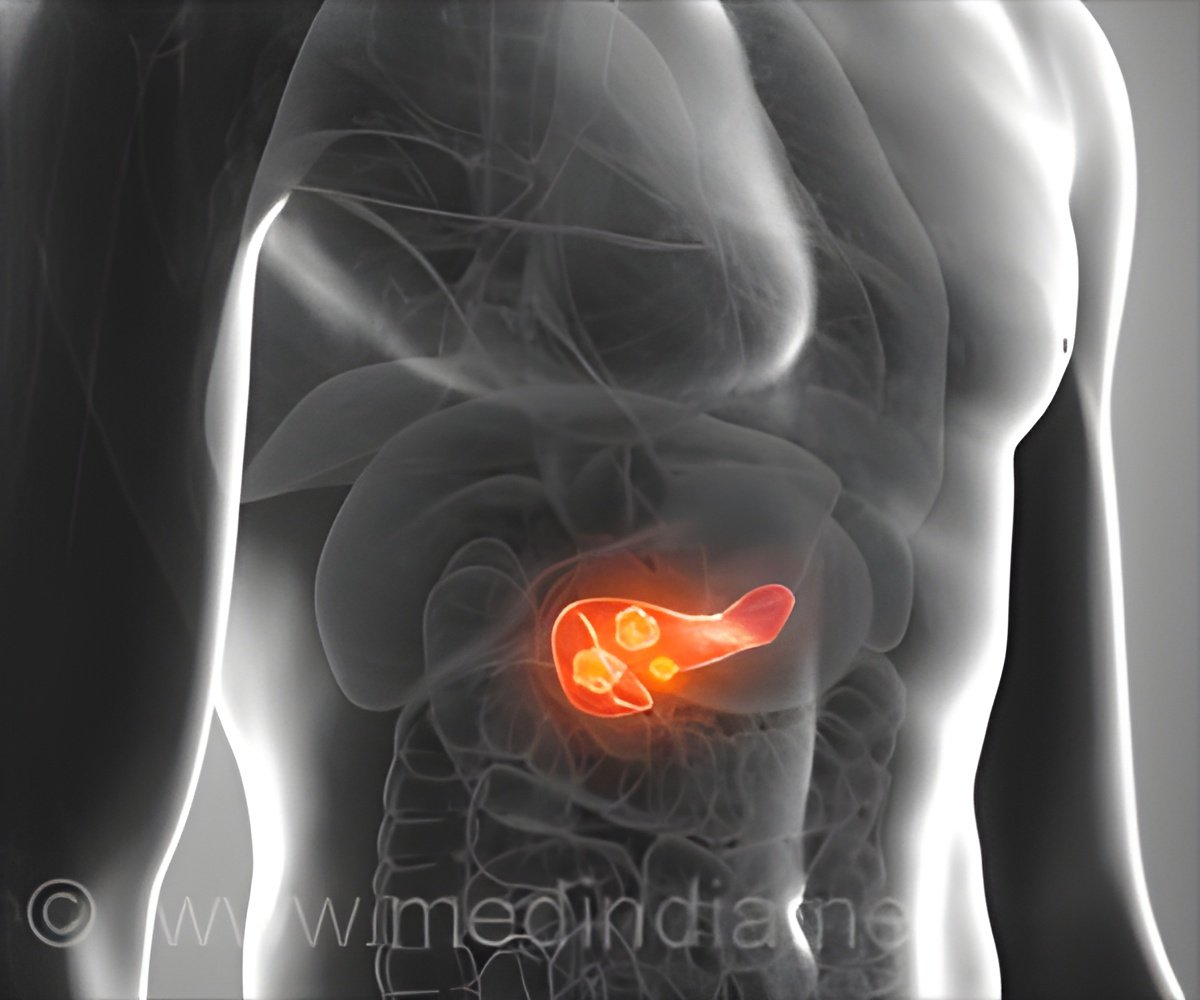
An experimental blood test detects early-stage pancreatic cancer more effectively than existing tests, stated study published in Cancer Letters. (1✔ ✔Trusted Source
A rigorous multi-laboratory study of known PDAC biomarkers identifies increased sensitivity and specificity over CA19-9 alone
) These findings open the door for further clinical evaluation, a crucial step toward approval as a potential diagnostic tool for pancreatic cancer.
“Catching pancreatic cancer early dramatically improves survival, but our current tools for doing so are limited,” said the study’s co-corresponding author Brian Haab, Ph.D., a professor at Van Andel Institute. “Our results reveal that our combination test improves accurate detection of pancreatic cancer in a lab setting by 27%. The next step is to evaluate the test’s effectiveness in a clinical lab rather than academic lab.”
CA19-9 is the current gold-standard biomarker for pancreatic cancer. Haab’s lab identified CA199.STRA as a cancer biomarker and developed the technology to detect it.
On its own, the CA19-9 test correctly identified only 44% of pancreatic cancer samples in the lab. When CA199.STRA was added, the new combination test correctly identified 71% of pancreatic cancer samples.
Reducing False Negatives and Positives in Pancreatic Cancer Detection
The combination test also greatly reduced the number of false negatives while maintaining a low false positive rate. Low rates of false positives and false negatives are important because they reflect the test’s ability to correctly identify the presence or absence of cancer.
This study was made possible by a longstanding collaboration of cancer researchers who participate in the National Cancer Institute’s Early Detection Research Network (EDRN). Haab and Randall E. Brand, M.D., a physician-scientist and professor of medicine at the University of Pittsburgh, are co-corresponding authors of the study.
The findings resulted from double-blinded assessments of several pancreatic cancer biomarker candidates by EDRN-affiliated labs at VAI, Fred Hutchinson Cancer Research Center, UPMC Hillman Cancer Center, and University of Nebraska. This is the first time multiple pancreatic cancer biomarkers from different labs have been evaluated in combination.
Advertisement
The analysis also revealed that combining CA199.STRA, CA19-9 and a protein biomarker called LRG1 improved specificity, which refers to a test’s ability to return a negative result in samples without cancer. The three-panel test accurately identified nearly all cases correctly and had far fewer false positives than CA19-9 alone.
“Another take-home message from this study is the importance of having multiple different validated biomarkers for pancreatic cancer,” Haab said. “A one-size-fits-all approach won’t work. It’s encouraging that we have many promising candidates that can be combined to better detect cancer.”
Advertisement
The new findings build on a 2019 study by Haab and colleagues that explored combining CA19-9 and STRA to diagnose pancreatic cancer. A 2020 study also suggested that STRA may identify pancreatic cancers that will respond to treatment versus those that will not.
Reference:
- A rigorous multi-laboratory study of known PDAC biomarkers identifies increased sensitivity and specificity over CA19-9 alone – (https://www.sciencedirect.com/science/article/pii/S0304383524006402?via%3Dihub)
Source-Eurekalert



